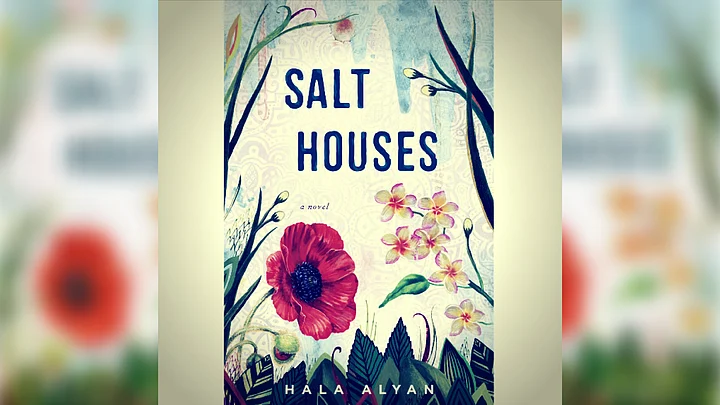It is very rare in today's era of media saturation about issues like the refugee crisis, that a book can make you reflect on all that you think you know about the issue. Salt Houses by Hala Alyan is one such book.
Salt Houses offers a poetic take on the human cost of conflict – refugees. The novel follows the life of Alia, a young Palestinian refugee and her family, as they become refugees, time and again, due to the conflicts plaguing the Middle East.
The story opens in 1963, when Salma, Alia's mother, is reading coffee dregs before Alia's wedding to predict her future. Salma sees displacement and travel in the cup and becomes concerned. To protect her daughter from this news, she falsifies her prediction.
But her prediction comes true in the form of the Six Day War – and later, the Iraq-Kuwait war.
What Does It Mean to be a Refugee?
The story switches between characters – Alia, her brother, her children – to create a picture of a family that has been uprooted over and over due to circumstances beyond their control. The idea of displacement, longing and memories dominates the plot.
The whole idea of being a refugee, the implications and the entirety of being forced to live such a life is detailed in this book. The novel also explores the divisions among the refugees themselves. Our perception of refugees is primarily based on images of refugee camps and deprivation. But Salt Houses also considers the differences among them, whether generational or economical.
Another important theme in the novel is the idea of rebuilding. Salt Houses illustrates how the act of rebuilding something, even if it is completely insignificant, matters to people who have lost their home. Salma, for instance, toils for months to create her own garden. Her feelings upon seeing the garden begin blooming after months of hard work and despair are illustrated in this passage:
“What astonishment, then, to walk outside one morning with her tea, surveying the wasteland, only to see a sliver sprouting; a weed, but still Salma fell to her knees and stroked it. She had the urge to run into the house, call for the children and Hussam, to show them something, at last, to lift their spirits.”
The poetic descriptions by Hala Alyan lift the book to another level. A Palestinian-American poet, Alyan's gift with words is reflected in the story's passages.
A Palestinian refugee camp and its inhabitants, near the outskirts of the city of Nablus, are described as follows –
“None of them are Nabulsi. They have come over the past two decades from villages, the ones soldiers set fire to or sowed with salt. They came from cities like Haifa and Nazareth. Their villages are lost, the names already eroded, replaced with new, Hebrew ones.”
Without a Homeland for Decades
Objects, and the memories that get associated with them also play a significant part in the novel. But the most important thing about the story is the theme of longing and displacement that it echoes.
The whole idea of being refugees is an abstract one to most of us. Having never been in their position, we cannot imagine even a shred of what they face. For us, the images of people fleeing their homes and surviving at camps are heartbreaking – but ultimately, often forgettable. Salt Houses, with its cross-generational take on conflict, loss of identity and the idea of homeland, tries to express what a refugee goes through. It tries to bring us closer to their experiences and feelings.
The characters of the novel are Palestinian refugees. This is also a significant fact. They have been without a homeland for decades – yet the international media attention on them is next to negligible today. By narrating the story of a Palestinian family, Hala Alyan focuses attention back on the community. She also sketches out the implications of war and displacement on people, which stretches over generations.
Today, when the crises in Syria and Yemen continue, when developed countries keep arguing over providing asylum to migrants, and, world over, communities keep fleeing their country to avoid persecution, Salt Houses paints a moving story of conflict and rebuilding.
(Priyale Chandra is a freelance journalist. She is currently pursuing her Masters in Convergent Journalism from AJK MCRC, Jamia Millia Islamia. Her areas of interest include literature, international relations and history. She can be reached @PriyaleChandra)
